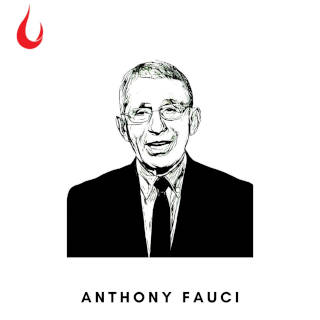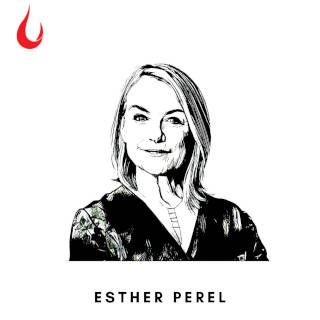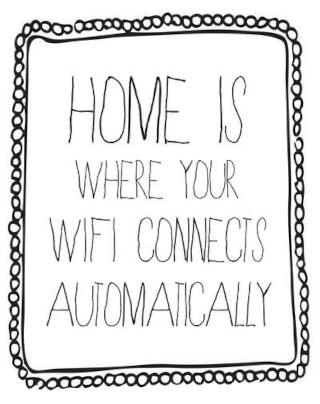[Photo by Priscilla Du Preez on Unsplash]
Good morning,
A question we hear often is, what can we do to help? What can we do to help others? What can we do to help ourselves? There is so much grief around, it is difficult to feel unaffected, and people feel vulnerable. That is why we turned to the pages of Silence: The Power of Quiet in a World Full of Noise by Thich Nhat Hanh, a spiritual leader and peace activist.
“Having the space to listen with compassion is essential to being a true friend, a true colleague, a true parent, a true partner. A person doesn’t need to be a mental health professional to listen well. In fact, many therapists aren’t able to do it, because they are so full of suffering. They study psychology for many years and know a great deal about techniques, but in their heart they have suffering that they haven’t been able to heal and transform, or they haven’t been able to offer themselves enough joy and play to balance out all the pain they take in from clients, so they don’t have the space to help very effectively. People pay these therapists a lot of money and go back to see them week after week hoping for healing; but counselors can’t help if they haven’t been able to listen to themselves with compassion. Therapists and counselors are human beings who suffer like everyone else. Their ability to listen to others is dependent first on their ability to listen compassionately to themselves.
“If we want to help others, we need to have peace inside. This peace we can create with each step, each breath, and then we can help; otherwise, we are just wasting others’ time—and taking their money if we’re professionals. What all of us need first is ease, lightness, and peace in our own body and spirit. Only then can we truly listen to others.
“This takes some practice. Take time each day to be with your breath and your steps, to bring your mind back to your body—to remember that you have a body! Take some time each day to listen with compassion to your inner child, to listen to the things inside that are clamouring to be heard. Then you will know how to listen to others.”
Stay safe. And may you be at peace.
In this issue
- The urgent, the immediate, and lessons of history
- Emotions that the pandemic triggers
- Where is home really?
The urgent, the immediate, and lessons of history
Speaking to The Indian Express, Dr Antony Fauci, chief medical advisor to the Joe Biden administration, described India’s situation as “very difficult and desperate” and suggested that India must shut down for a few weeks. He suggested three prescriptions to be followed. The immediate, intermediate and urgent.

“To have a country like India, where two percent of people are vaccinated, is a very serious situation. You absolutely have to get more people vaccinated.”
“I would think that you’ve got to get some sort of a commission, or an emergency group to make a plan how to get oxygen; how do we get supplies; how do we get medications, and call—maybe with help from WHO—countries… The second thing, you can mobilise different groups of government… And, finally, in the longer range, in a matter of a couple weeks, I would do whatever you can do to get vaccinated.”
Meanwhile, in other parts of the world, historians are poring over their notes to make sense of how to comprehend the future as it may unfold. This, because it may offer policy makers pointers on how to deal with policy making as the narrative unfolds. The Economist has attempted to do just that in its most recent edition. Their research has it that booms follow the economic busts and political instability in the aftermath of a pandemic.
The magazine reports that after cholera hit France in the 1830s (it wiped out nearly 3% of all Parisians in a month) “The city’s poor, hit hardest by the disease, fulminated against the rich, who had fled to their country homes to avoid contagion.”
But on looking at the data, “the rich world is on the verge of a post-pandemic boom. Governments are lifting stay-at-home orders as vaccinations reduce hospitalisations and deaths from the virus. Many forecasters reckon that America’s economy will grow by more than 6% this year, at least four percentage points faster than its pre-pandemic trend… the G7 economies going back to 1820 suggests that such a synchronised acceleration relative to trend is rare. It has not happened since the post-war boom of the 1950s.
“The record suggests that, after periods of massive non-financial disruption such as wars and pandemics, GDP does bounce back. It offers three further lessons. First, while people are keen to go out and spend, uncertainty lingers. Second, crises encourage people and businesses to try new ways of doing things, upending the structure of the economy. Third, as Les Miserables shows, political upheaval often follows, with unpredictable economic consequences.”
Dig deeper
- Shut down for a few weeks (Dr Antony Fauci in The Indian Express)
- What history tells you about post-pandemic booms (The Economist)
Emotions that the pandemic triggers
There was no escaping the plethora of troubled news that kept hitting our phones and inboxes through all of last week and the weekend. Many friends we spoke to reported feeling overwhelmed. These are difficult times. Our conversations with mental health professionals have it that giving a name to the emotions and acknowledging its existence helps. That is why, Esther Perel’s essay on the theme got our attention. As she pointed out, “We’re not tired; we’re burned out. We’re not ‘waiting for things to return to normal,’ we’re obsessing about what ‘normal’ will even be after this. And for that matter, when is ‘after’ going to come?”

“We’re not tired; we’re burned out.”
One of the emotions she places a finger on is what she calls anticipatory grief. “Tragically, many of us are grieving the loss of loved ones who we couldn’t touch or even be near at the end. Heroic doctors and nurses have taken on an additional burden—facilitating video chats between patients and their families so they can say goodbye. Death doulas like Sierra Campbell are conducting funerals on Zoom, which may be the first time that funerals are actually recorded and can be rewatched. Many others are experiencing anticipatory grief, the realization that we could lose our loved ones. For those of us alone in quarantine, we’re grieving the loss of all direct human connection. And those of us who have lived with too much neglect and loneliness are being triggered again and losing hope that we won’t always need to be so self-reliant.”
Dig deeper
Still curious?
- Financial independence was always hard. The pandemic just made it harder, writes Shravan Bhat. A beer of silent triumph
- After digging through our archives that included conversations between parents and children around what is unique about their generation, we distilled six lessons on Navigating the pandemic with passion
Where is home?

(Via Pinterest)
Tell us what you think and find noteworthy.
And if you missed previous editions of this newsletter, they’re all archived here.
Bookmark Founding Fuel’s special section on Thriving in Volatile Times. All our stories on how individuals and businesses are responding to the pandemic until now are posted there.
Warm regards,
Team Founding Fuel
(Note: Founding Fuel may earn commissions for purchases made through the Amazon affiliate links in this article.)



